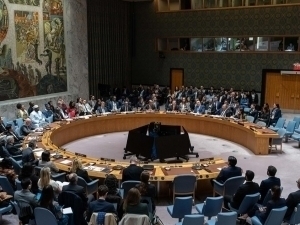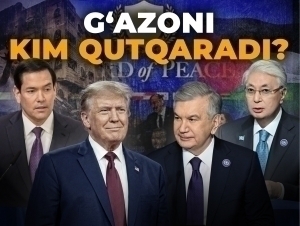Tons of narcotic drugs flow into Uzbekistan in one year
Local
−
18 November 2024 13884 5 minutes
In the past five years, Uzbekistan has seen nearly a twofold increase in drug-related crimes, with the confiscation of illegal drugs rising 8.5 times and synthetic drugs surging 400 times. These alarming statistics have drawn the attention of the United Nations Office on Drugs and Crime (UNODC) to Uzbekistan.
A discussion on this pressing issue was recently held in Tashkent, with the participation of the UNODC and the National Center for Narcotics Control under the Presidential Administration.
"This year alone, the amount of narcotic drugs intercepted by customs authorities is nearing 1 ton, totaling more than 974 kilograms. The situation is concerning, particularly in light of developments in Afghanistan. Post-pandemic, a new conflict has emerged between traditional and synthetic drugs. Synthetic narcotics pose the gravest threat, endangering innocent lives. A few hundred grams of synthetic drugs can equal several hundred kilograms of traditional drugs in potency," explained Customs Committee spokesperson Husan Tangriyev.
Tangriyev emphasized that most drug trafficking cases in Uzbekistan originate from its border with Afghanistan, raising critical questions about the latter's ability to shed its global image as a "drug center."
The event in Tashkent also featured a statement addressing the ongoing drug challenges in Afghanistan, underscoring the regional implications of this persistent menace.
"Afghanistan is seeking alternative livelihoods, but drug cultivation continues to rise, spreading into neighboring countries," stated Salome Flores Serra, head of the UN Narcotics Control Center in Tashkent. She noted that while previously concentrated in Afghanistan's southern regions, drug plantations have increasingly shifted to northern areas. "For instance, nearly nine percent of crops are now grown in the Badakhshan region," she added, highlighting that the illegal poppy trade extends to Central Asia and beyond, with bans proving ineffective. Most confiscated drugs in Uzbekistan originate from Afghanistan.
Globally, the UN reports that 300 million people use drugs, and over 5 million fall victim to human trafficking annually. This crisis poses serious concerns for Uzbekistan and other nations.
"Over the past year alone, 66 kilograms of opium, 8.2 kilograms of cocaine, 9.5 kilograms of poppy, and more than 48 kilograms of heroin have been detected. He also found 221-222 kilograms of hashish.
Now let's talk about synthetic drugs. When it comes to what types are coming in the most, synthetic drugs such as alpha-pvp, amphetamine, methamphetamine, and mephedrone are the most common. is visible.
In fact, this relevance is no less than that. Attempts to illegally smuggle drugs such as tramadol and zopiclone are becoming increasingly visible. If we dwell on the numbers, this year about 500,000 psychoactive drugs were stopped by law enforcement agencies. This shows that it has increased by one and a half times compared to the same period last year," said Tangriyev.
Experts have raised concerns over the increasing consumption of synthetic drugs worldwide, including in Uzbekistan, particularly among schoolchildren and youth. These drugs are becoming harder to detect as their variety grows year by year, and officials stress the need for parents to closely monitor their children's activities.
"One of the saddest realities is that new types of drugs cannot be identified by their smell or appearance. Unlike classic drugs, these substances do not cause the same noticeable withdrawal or pain symptoms, making them harder for parents to detect. Additionally, after using these drugs, young people often experience a decrease in energy levels, which further diminishes their ability to maintain self-control.
In addition, another concerning issue that we must acknowledge, whether we like it or not, is the addiction of our youth to gadgets and phones. Now, the hand-to-hand sale of drugs is also spreading online, particularly through social networks. Online advertisements often lure young people into these situations. Many times, drugs are introduced through hearsay from friends or even by adults in schools.
In some schools, adults have approached students with misleading claims like, 'If you want to study well, try this,' or 'If you want to learn mathematics and theorems quickly, this medicine will help you.' These deceptive tactics lead young people to unknowingly try these substances. The most tragic part is that synthetic and powerful drugs are often addictive from the very first use, making it incredibly difficult to quit," said Shuhratjon Gulamov, head of the National Narcotics Control Center under the Presidential Administration.
It is impossible not to mention the Urgut district of the Samarkand region when talking about the production and sale of narcotic drugs. It has become a common subject of jokes in this context. But does this mean that Urgut is the drug center of Uzbekistan?
"Some sources spread such stories among the people, but it is not entirely true. However, when it comes to classic narcotics, Urgut does indeed have a slightly higher traffic of domestically produced or trans-Afghanistan narcotics. The main reason for this is its location as a border region, where many drugs are transited. Due to these circumstances, narcotics are more prevalent in that area," explained Gulamov.
Live
All



